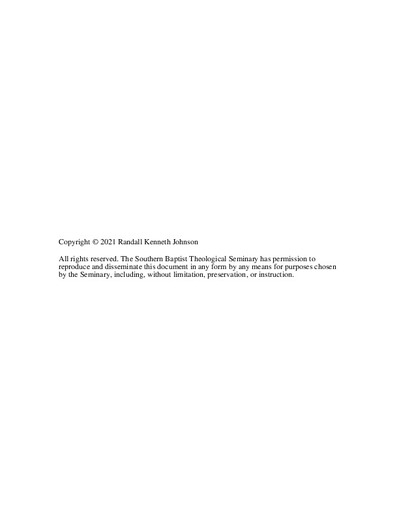The Christological Case for Compatibilism
Description
This work is embargoed by the author until 12/06/2023.
Abstract
Classical Christology entails compatibilism. In other words, that freedom and moral responsibility are compatible with determinism is a necessary consequence of the teaching about Jesus Christ found in Scripture and affirmed in Christian, historical orthodoxy. The four main camps in the free will debate are PAP libertarianism (which claims that alternative possibilities are necessary for free will), sourcehood libertarianism (which claims that an agent must be the ultimate source of her actions in order for her actions to be free), hard determinism (which affirms determinism and denies free will), and compatibilism (which affirms the compatibility of free will and determinism). Jesus Christ’s perfect obedience and conformity to the divine will can be maintained only by a compatibilist paradigm. The three chapters following the introduction discuss contemporary views of free will, classical Christology, and historical christological arguments for compatibilism, respectively. The following four chapters assume the truth of classical Christology and proceed to demonstrate the falsity of PAP libertarianism (chapter 5), sourcehood libertarianism (chapter 6), and hard determinism (chapters 7 and 8). Chapter 9 provides a positive christological case for compatibilism using three modes of argument: (1) an appeal to Christ’s teaching, (2) an appeal to the necessity of the incarnation and atonement, and (3) an appeal to Christ’s impeccability and the non-contrariety of his divine and human wills. The conclusion discusses the significance of the christological case for compatibilism and suggests areas for further research.

